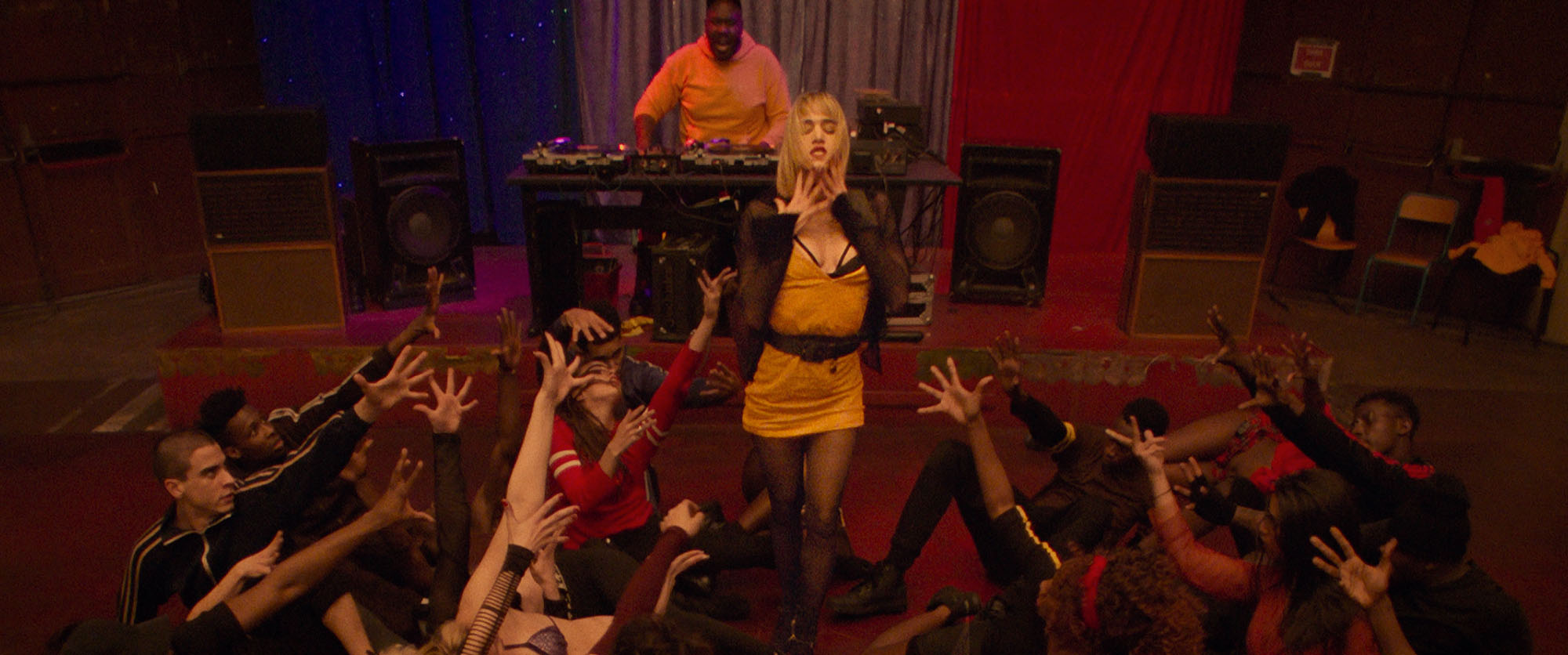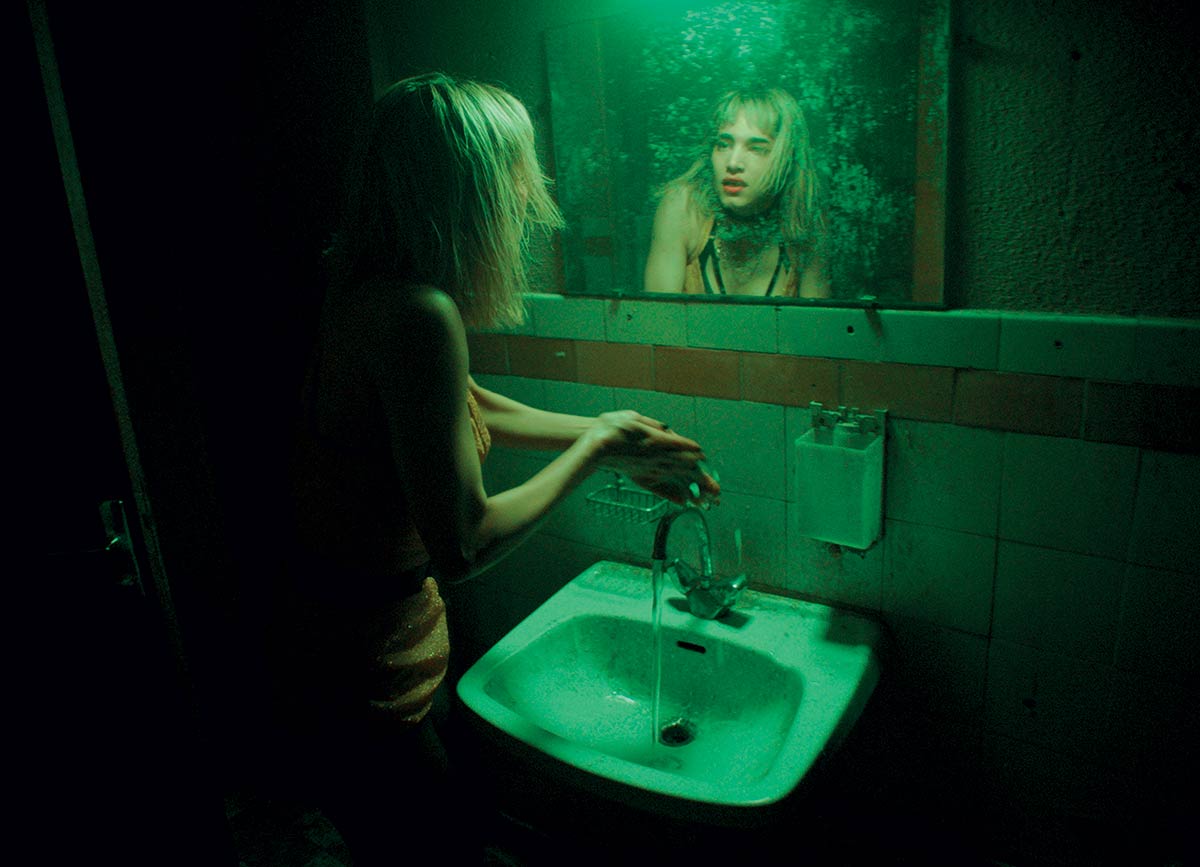by Chris Feil

The first third of Climax achieves the most gobsmacking of feats: it convinces you, and wholeheartedly, that provocateur Gaspar Noé might actually have gotten his shit together. After languorous attempts to shock like Love, overly lethargic flashes of innovation like Enter the Void, and burdensome levels of grimness like Irreversible, his new film emerges as something both audacious and (most importantly) succinct. But jokes on us because this is, after all, a Gaspar Noé experience. It also happens to be the best one yet.
The film follows an early 90s french dance crew, shockingly based on an actual event. Led by Selva, a choreographer played by Sofia Boutella, the ensemble shacks up in an empty remote building during the dead of winter to learn their new routines and develop a sense of community among them. Their unity is a spectrum of personality, a cornucopia of queerness and simmering resentments and sexual tensions that are par for the course in a troupe of creative types. But when the crew decides to celebrate their hard work with a party and someone sneaks a heavy dose of LSD into the sangria, the night devolves into hallucinogenic carnage.
Plenty of Noé staples are present and as loud as ever - displaced credits sequences, obsessions on violent male degeneracy, offhandedness with such topics as abortion, drug use, and sexual fluidity. But before the film’s final act goes into full, dizzying Hieronymus Bosch, the auteur delivers something purely thrilling in form unlike never before. Ultimately he can’t help himself from spinning into abstract brutality, but this is at least his most convincing display of his recurring thesis that the universe is built to destroy all beautiful things.
His fascinations are of excess and the human essence, with Climax using dance as an ingenious vessel that diminishes his pretensions. Imagine Paris Is Burning by way of Pasolini and Argento and you get somewhere close to the film’s evolving identity over its jampacked 95 minutes. Its first group dance sequence is worth price of admission alone, delivering a one-take dose of creative ecstasy, a gay fantasia among the most singularly thrilling film moments of the year. The title is apt, however premature.

Once the party gets into full swing, it’s a slow burn into a hellscape of human debauchery, suspicion, and violence. Naturally, Noé wants to Go There, taking a sledgehammer to taste and decorum with shocking violence. But his typical mounting expressionism works so much better here because for once we feel rooted in a human reality, given its range of characters to invest in before their gorgeous unity is dismantled from the inside. Boutella is given the best showcase, nailing her astounding long take moments like a balletic Isabelle Adjani from Possession.
Climax is a film to sway the Noé dismissers even if it still frustrates them in parts. At this point we shouldn’t expect the director to approach a film without asking himself “what if this shot but also upside down? And, you know, there’s always God.” Yet this film exhibits a massive amount of growth in understanding how much one film can bear and a clarity of vision that allows its philosophies about existence to coexist seamlessly with its outlandish cinematic language. Equal doses of “ouch” and “holy shit”, it’s nevertheless strange that we can now describe a Noé film as... fun.
Grade: B